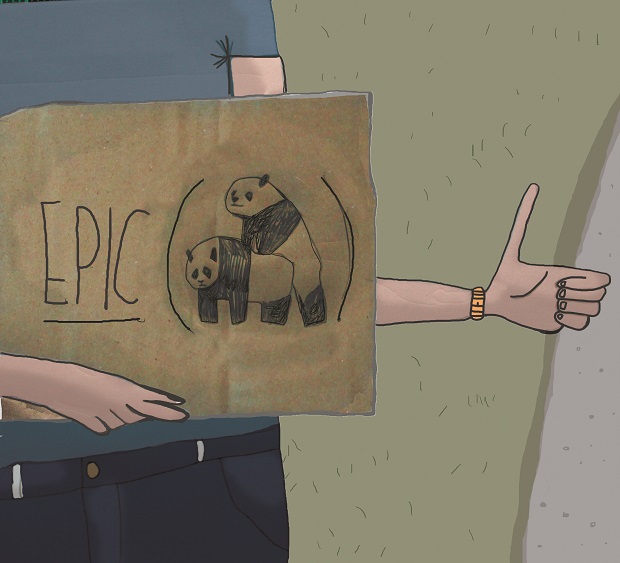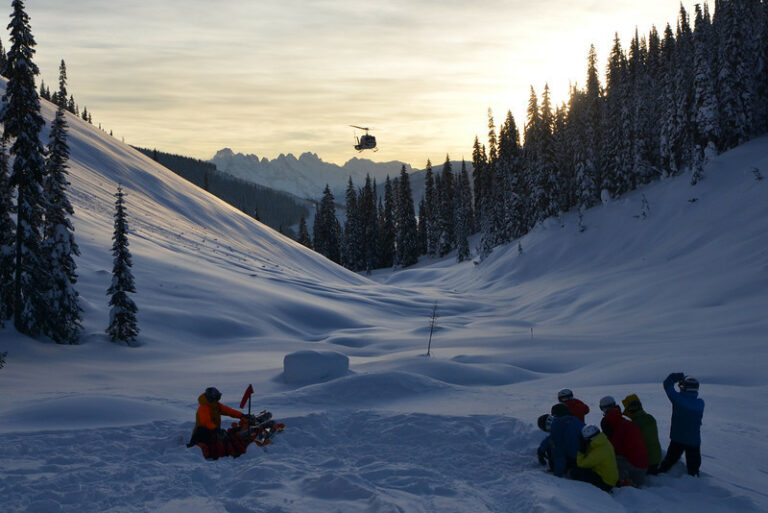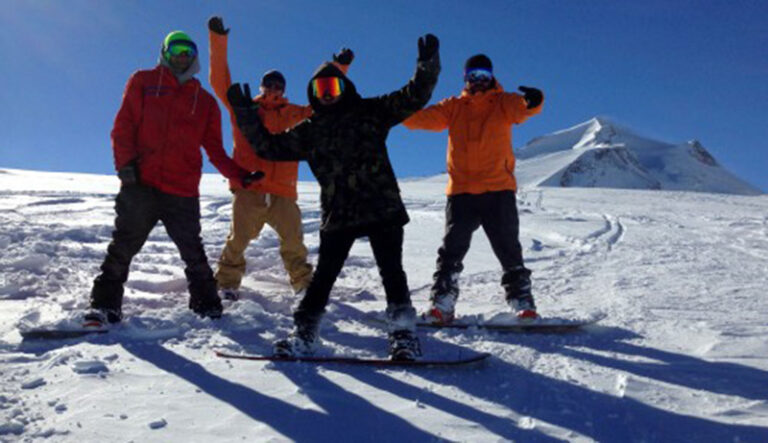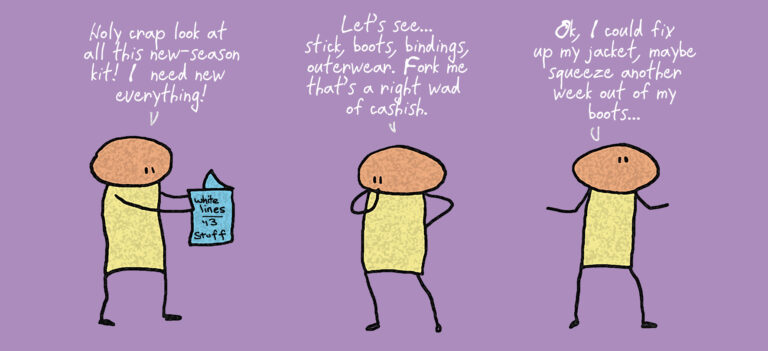How (Not) To Travel Overseas with A Snowboard

Words by Chris Moran taken from Whitelines Issue 101
I’ll be the first to hold my hands up: we’ve got rubbish mountains in the UK. Yes, there are ski lifts in Scotland, the Lake District and Northumberland, but booking a holiday there in the hope of epic powder is a bit like hitchhiking to Edinburgh Zoo to see some panda-on-panda action. It’s not strictly out of the realms of possibility, but you wouldn’t want to bet the farm on it.
Thus we need to travel overseas to get our kicks, and for this reason we must thank our wonderful sport of snowboarding for getting us into all sorts of foreign scrapes. And let’s face it: if there was a book of cliches, the ‘travel’ section would be pretty thick indeed.
It all starts with the voyage itself. When flying, “it’s always worth dressing smartly for the plane,” says our fictional book, “to increase your chances of an upgrade.” It also explains why I’ve spent so many hours stuffed into an economy seat looking like I’ve just come out of a job interview for Spud-U-Like.
Or you can ditch the ill-fitting suit, cram into a mate’s car, drive down to Dover and try to pass customs without arousing suspicion. “Never touch one’s face when passing officials,” the book tells us. “It’s a sure sign of guilt.” I have no idea whether this is true, of course, because I’ve spent every border crossing gripping the steering wheel in fear and smiling with the sincerity of Gordon Brown. Twitching.
I’m in Iran smoking fruit-flavoured tobacco through a hookah pipe with an American flag burning in the background #ohlordy
And then there’s the obligatory ‘passport joke’ – a classic prank to wind up your friends on any snowboard mission. Beginners can opt for the “Oh no! I’ve left it at home,” version, best delivered during the approach to the ferry terminal, but experts might wish to emulate the group of snowboarders who once managed to convince a member of their crew that he needed a passport to cross the border into Scotland. So convincing was their outcry that the young man eventually believed the falsehood. The result? He crossed the English/Scottish border in a board bag, strapped the roof of the car. And yes, he climbed back in the bag for the return journey too.
Travelling abroad is always hailed as a horizon-broadening experience. Much of the time we’re looking for those perfect moments that succinctly sum up the journey in 140 characters or less. “I’m in a Japanese Onsen that’s full of men! #wheninrome” we tweet. “I’m in Iran smoking fruit-flavoured tobacco through a hookah pipe with an American flag burning in the background #ohlordy,” “We’re holed up in a Khazakstan youth hostel drinking neat vodka with a group of fez-hatted, tooth free taxi drivers sharpening their knives in preparation of a chicken-killing feast #mmmsundayroast.”

The more you travel, the more moments there are to look back on and cringe. I have a distinct memory of stopping at a service station outside Milan which served industrial strength espressos and awesome sandwiches, and making an attempt to speak to the locals. Next to me was a truck driver, covered in diesel, also appreciating the great coffee. He nodded, and I raised my cup and muttered the only Italian phrase I knew at the time: “spirito de punto.” A friend spat their latte through their nose. I’m blushing as I type. It actually happened.
But then there are those moments of pure brilliance: eating a Toblerone in full view of the Matterhorn; or being halfway between LA and Mammoth Mountain, stopping for a piss in the middle of the desert and being air-horned by a passing mega-truck.
The thing is, we are by no means the first generation to realise that travelling is good for the constitution. As far back as the 1700s, the idea of setting off on a ‘Grand Tour’ as it used to be known, was seen as a right of passage, and we are simply the latest generation to pick up the baton. In the late 1760s, a 25-year-old named Joseph Banks – who later went on to found Kew Gardens – set off on his travels. His contemporaries might be content to visit Europe’s palaces and cities, but Banks had loftier ambitions. “Every blockhead does that,” he wrote, “but my Grand Tour shall be one round the whole globe.” True to his word, he set off with the famous navigator James Cook on a circumnavigation of the world. In Tahiti, the ship dined with a native chief. “He imitates our manners in every instance,” wrote Banks in his diary, “already holding a knife and fork more handily than a Frenchman could learn to do in years.”
Proving conclusively that no matter how far we travel, there’s always a decent opportunity for sticking the boot into our oldest nemeses. A fine tradition, and long may it continue (in jest, of course).





